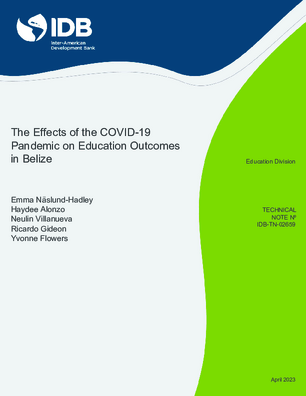The Effects of the COVID-19 Pandemic on Education Outcomes in Belize
Date
Apr 2023
The COVID-19 pandemic brought school systems to a halt across the globe. In Belize, remote learning was challenging owing to limited access to educational technologies and lack of familiarity with remote learning among teachers. This study draws on national standardized exams and specific achievement testing to assess pandemic-related learning losses at the primary education level. Based on administrative data, the study also analyzes changes in student enrollment, dropout rates, and grade repetition at the primary and secondary levels. We find that school closures resulted in significant learning losses in English language and mathematics at the end of primary education. Matching international trends, the largest losses occurred in mathematics. Among the strands of mathematics content, the one showing the most dramatic loss is number sense in primary schools and geometry in secondary schools; the achievement level in both dropped by around 55 percent. Also, in line with international trends, average student repetition and dropout rates surged at the secondary level after prolonged school closures. The largest increase in dropout and repetition levels were found in urban secondary schools: the average dropout rate increased by 51 percent in the 2020/21 school year, compared with the average rate in the year prior to the start of the pandemic, while the repetition rate increased from 6.7 percent in the 2019/20 school year to 11.6 percent in the 2021/22 school year.




